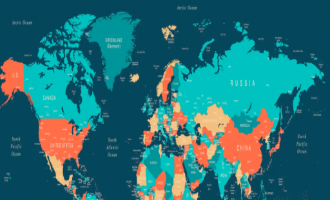Decoding the Challenge: What Is the Hardest Language to Learn for English Speakers?
Learning a foreign language can be an exciting adventure, revealing new cultures, ideas, and possibilities. But let's face it—learning it can also be challenging, especially for English speakers navigating the most difficult languages to learn for English speakers. So what factors determine whether a language is difficult or easy to acquire? Let’s delve in to find out.

DIFFICULTY LEVELS OF LANGUAGES FOR ENGLISH SPEAKERS
Language learning doesn’t come easily for every English speaker; some languages feel like a leisurely stroll, while others resemble climbing Mount Everest.
EASY LANGUAGES
German and French are among the easiest foreign languages for English speakers, thanks to shared roots and vocabulary similarities. Even newcomers can become conversational within months with dedicated study.
MORE DIFFICULT LANGUAGES
Languages like Indonesian and Swahili present their own challenges, requiring learners to acquire new grammatical structures and vocabulary. However, with hard work, they can be conquered.
MEDIUM DIFFICULTY LANGUAGES
Turkish and Zulu fall into this category, each with distinct grammar rules and unique vocabularies that demand time and patience to master.
DIFFICULT LANGUAGES
Hungarian and Vietnamese are considered difficult due to their complex grammar systems and tones, making them challenging for English speakers to master.
HARDEST LANGUAGES FOR ENGLISH SPEAKERS
When it comes to the most difficult languages to learn for English speakers, Arabic, Mandarin Chinese, Cantonese, Japanese, and Korean stand out as particularly daunting.
THE TOUGHEST LANGUAGES FOR ENGLISH SPEAKERS
Let’s examine these five languages closely to understand why they present unique challenges.
ARABIC
Spoken by over 420 million people globally, Arabic’s complex script, right-to-left writing system, and multiple dialects make it especially challenging for English speakers.
WHY ARABIC CAN BE SO DIFFICULT FOR ENGLISH SPEAKERS
Arabic’s distinct script, multiple dialects, and unfamiliar sounds create steep learning curves. Its diversity across regions adds another layer of complexity.
MANDARIN
Mandarin, spoken by over one billion people, is tonal—meaning word meanings change with tone. Its complex writing system, featuring thousands of characters, further complicates learning.
WHY IS MANDARIN DIFFICULT FOR ENGLISH SPEAKERS?
Mandarin’s tonal nature and character-based writing system demand significant effort. The language’s reliance on tone for meaning adds another hurdle.
CANTONESE
Spoken primarily in Hong Kong and Guangdong, Cantonese shares tonality and a complex character system with Mandarin but has even more tones, making it harder to learn.
JAPANESE
Spoken by over 125 million people, Japanese uses three writing systems (Hiragana, Katakana, and Kanji) and an intricate honorific system that adapts to social context, posing challenges for English learners.
KOREAN
Spoken by approximately 75 million people, Korean uses the accessible Hangul script. However, its complex grammar and dynamic honorific system—similar to Japanese’s—make it difficult to master.
HOW DO JAPANESE AND KOREAN DIFFER DEPENDING ON WHOM YOU SPEAK TO?
Both languages require speakers to adjust their speech based on social status, a concept unfamiliar to many English speakers. This adds complexity to communication.
HOW LONG WILL IT TAKE TO MASTER THESE DIFFICULT LANGUAGES?
Time required depends on dedication, resources, prior language experience, and cultural biases. Generally, mastering these languages takes several years of dedicated study.
Learning a foreign language can be daunting, but don’t give up! Immersion accelerates progress, and remember: no matter how difficult a language seems, someone is likely struggling with English just as much. Keep practicing, celebrate progress, and happy studying!
-
Top LGBTQ+-Safe Countries for Teaching English Abroad Programs 2024
"Explore the safest countries for LGBTQ+ TEFL teachers in 2024. Discover inclusive teaching English... -
Tips for Avoiding Potential Problems While Teaching English Online
Congratulation to start your online teaching journey, you might need to pay attention to many rules... -
Mastering Error Correction in TEFL Classrooms
Learn effective strategies for correcting errors vs mistakes in TEFL classrooms to boost student con...








